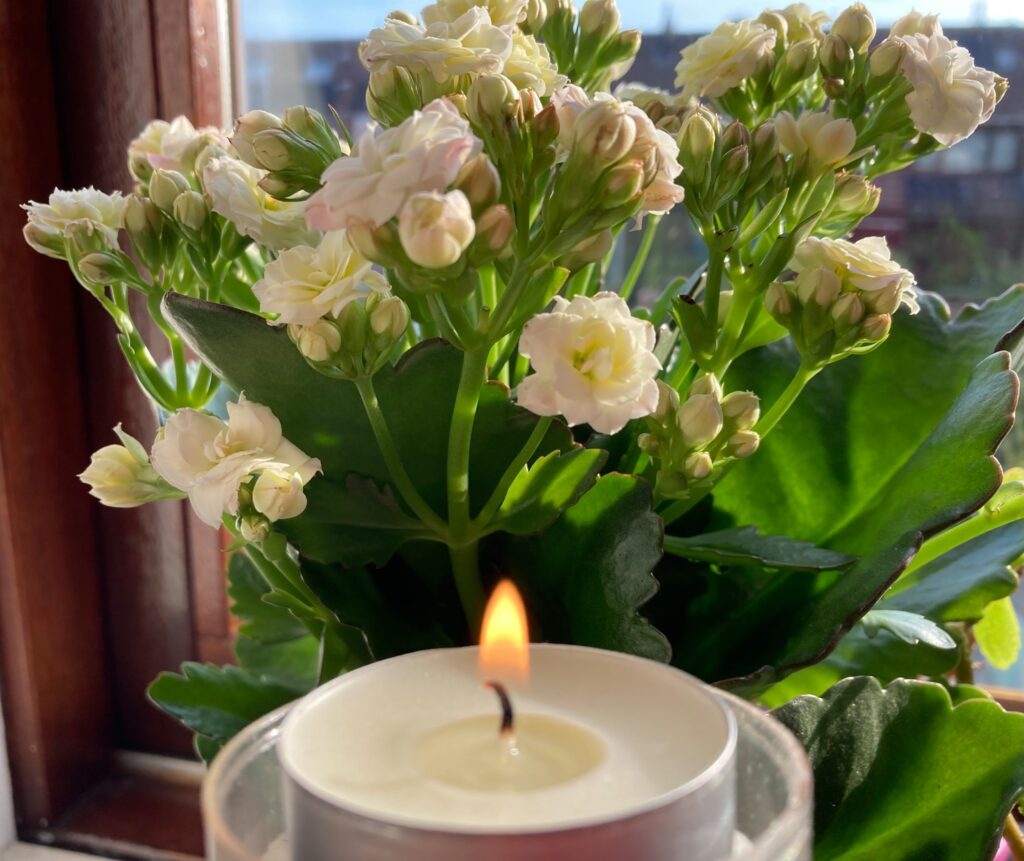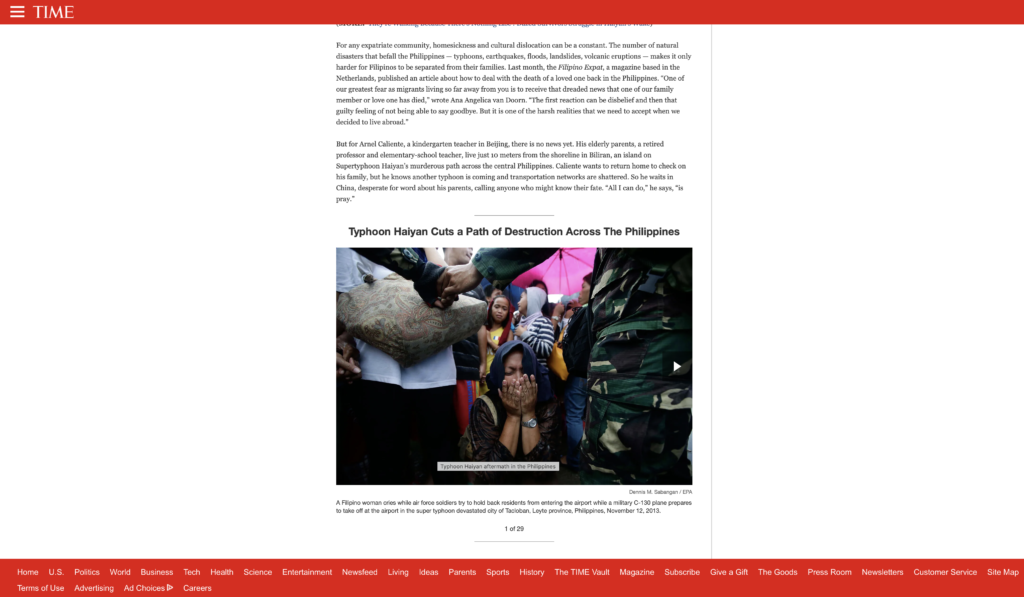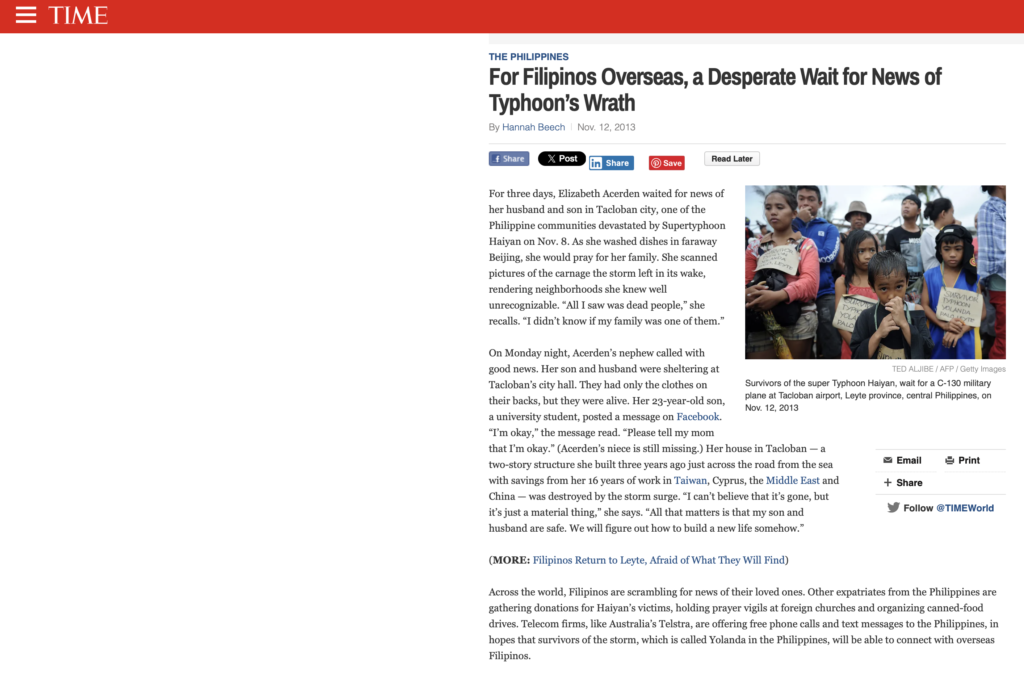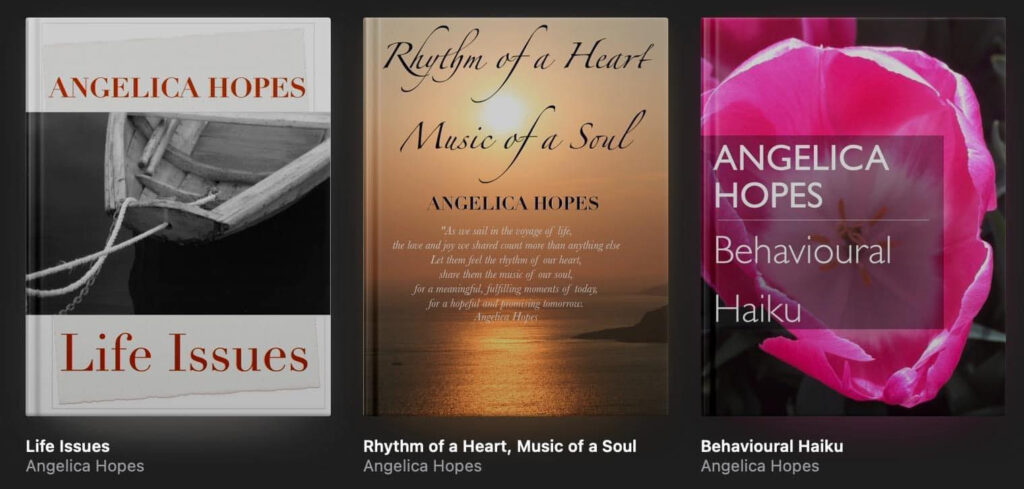
One of our greatest fears as migrants living so far away from your loved one is to receive that dreaded news that one of our family member or loved one has died.
I still remember clearly nine years ago when I received an SMS from Mamma that Papa had died in a motor accident. I was alone in the office, and my mind went blank as I stared at the Bloomberg double computer screens while colour indications of the day’s trading: red, green and blue meaninglessly blinked in front of me; my eyes gave in to a deluge of uncontrollable tears. It was after an hour, I was able to organise immediately what to do: I called my Boss, asked for ten days’ leave and two months’ advance salary to cover the funeral expenses, booked flights and sought permission from the school for my daughters’ absence for this forthcoming, immediate trip to revisit the Philippines. It was hard to break the news to my daughters, who were looking forward to seeing their grandpa in December, but his untimely tragic death happened in May.
Amidst all preparations, with a heavy heart, I needed to be strong to deal with pain, grief and loss, not only on death but on the divorce proceedings going on that year. That night, after my daughters heard the bad news, my eldest daughter asked, “Mamma, can we just sleep on the floor with a blanket like when we transferred to this apartment when we didn’t have any furniture?” So we did sleep on the floor in an old blanket, with my protective arms around them, praying and reflecting about life, death and survival with memories of Papa unfolding and my tears pouring silently in the dark as I told them, reliving my happy memories of my father.
Death is not the only loss we grieve. We have our fair share of various disappointments and grievances in other losses of life such as job loss, divorce, loss of trust, significant health changes, legal problems, retirement, good or bad financial changes, empty home, moving to another country, relationship break up and loss of safety.
Remember that we all deal with our losses in a unique way, depending on what coping mechanism works best for our character and our way of life. Our frustrated feelings can lead us to emotional isolation, a lifelong negative impact if we don’t heal our loss completely.
It is essential:
– to accept the situation
– learn to forgive the people and the instances beyond your control
– to completely recover, heal the deep, painful wound of emotional loss
gradually move on
– In this challenging phase of our life, when we take actions to recover successfully, it requires our flexibility, patience, willingness, courage and open-mindedness.
It is good to be with affirmative, true friends and support groups, read books, keep ourselves busy, have constructive hobbies, and be in touch with nature for this soothes, restores and begets unravelling resolutions that help us bring a grieving experience to a successful healing.
The pain of unresolved grief from any significant loss can destroy future relationships or be detrimental to future progressive plans. It is expected to feel very sad from time to time, talk about those feelings no matter how those around us react, realising that our ability to talk about our loss is normal and healthy.
Some disappointments are best forgiven when others say or do things we know are based on their lack of knowledge of the situation.
Strive to feel better, have strong hope, new better plans amidst any bleak situation we may face. How we handle disappointment along the path towards the realisation of our goals, the consistency, strength, faith and spirit of enthusiasm are vital to thriving as we claim our circumstances instead of having such disappointing grievances and loss claim us and our happiness.
© 2013 Ana Angelica Abaya van Doorn
I was quoted in TIME on November 12, 2013.


P.S. I wrote this article in October 2013 and gave and published it in The Filipino Expat Magazine.
LIFE ISSUES is available on Apple Books.




Comments are closed.